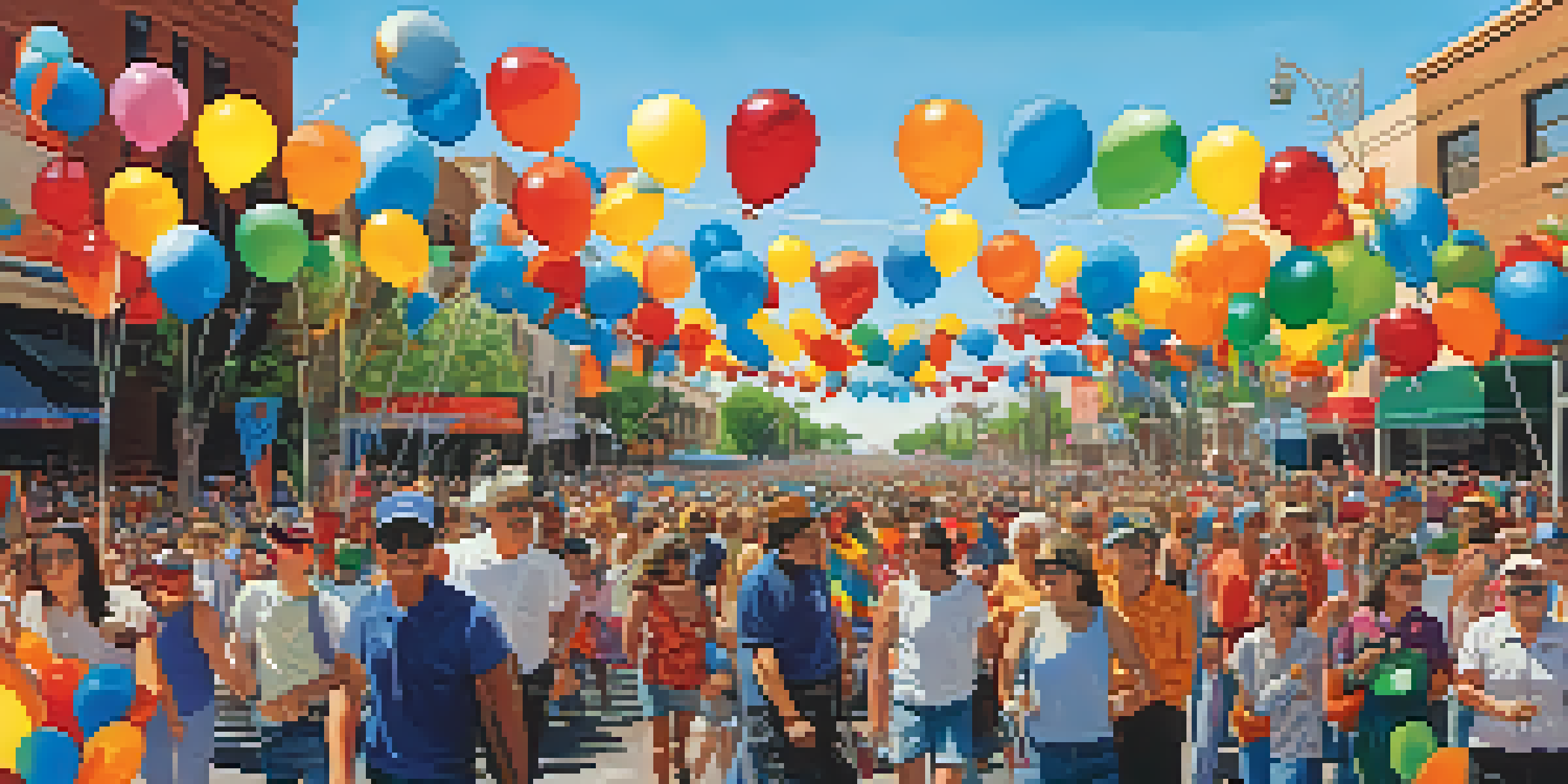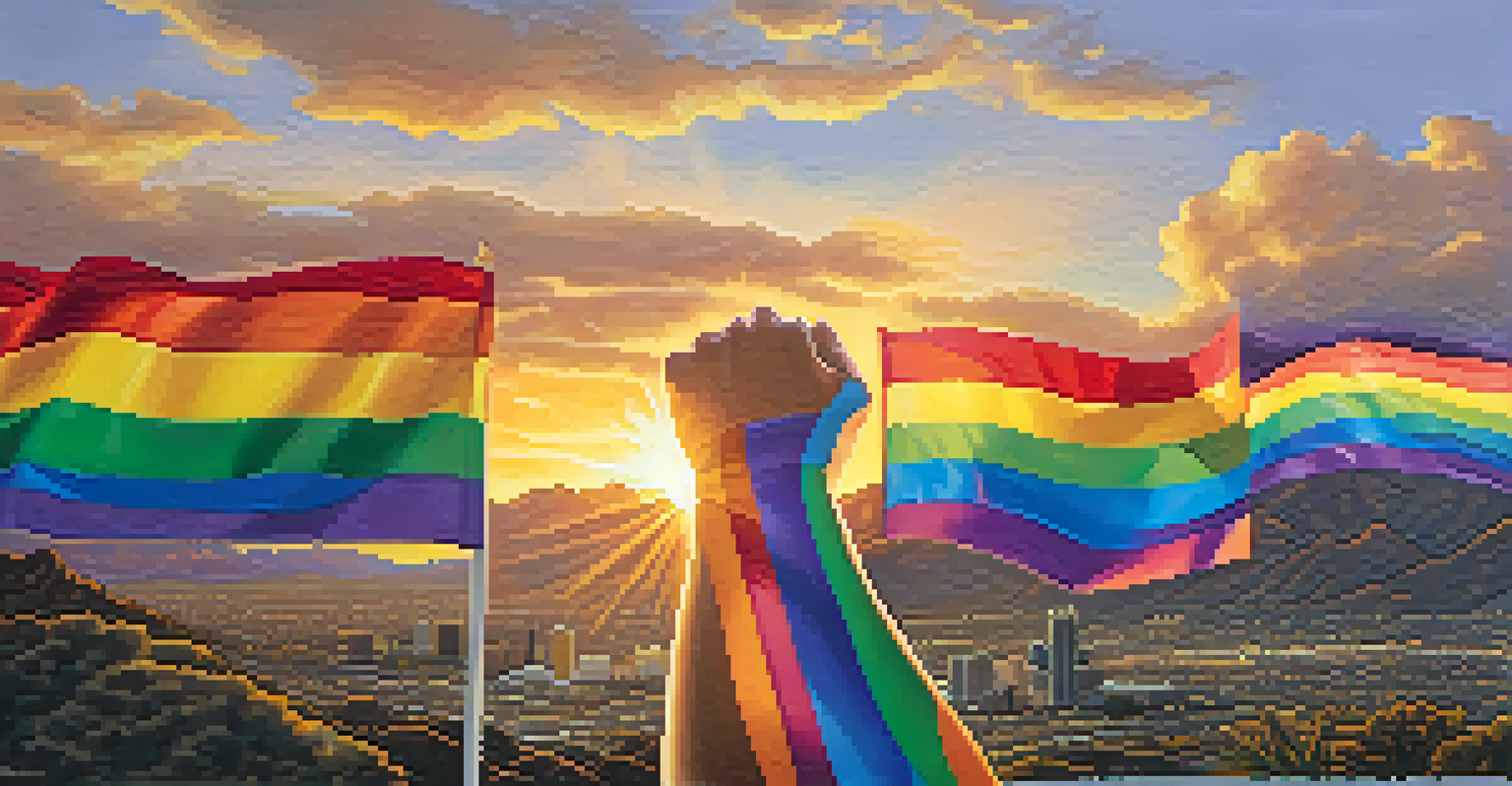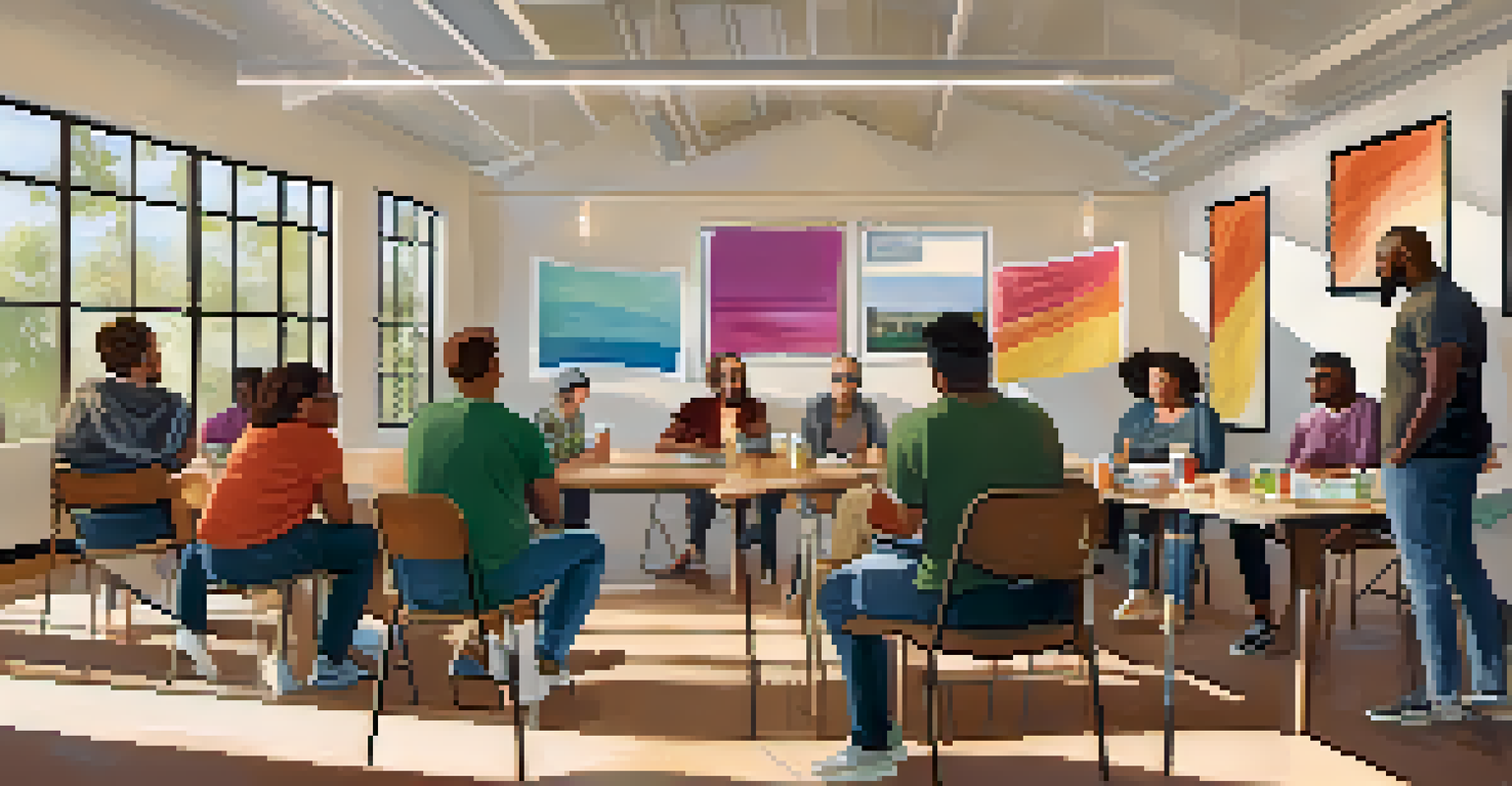Tucson's LGBTQ+ Advocacy Groups: A Timeline of Impact

The Early Days: Pioneers of LGBTQ+ Advocacy in Tucson
In the 1970s, Tucson began to see the emergence of its first LGBTQ+ advocacy groups. These pioneers laid the groundwork for a community that had long been marginalized, providing safe spaces for individuals to gather and share their experiences. One of the key organizations during this time was the Tucson Pride, which sought to create visibility for LGBTQ+ issues and foster a sense of belonging.
Injustice anywhere is a threat to justice everywhere.
During this era, events like the first Pride parades started gaining momentum, showcasing the vibrancy of Tucson's LGBTQ+ community. These gatherings not only celebrated identity but also served as a powerful statement against the discrimination faced by LGBTQ+ individuals. As such, they became a platform for raising awareness and advocating for equal rights.
The impact of these early initiatives was profound, as they inspired many to join the movement, creating a stronger coalition of voices. This foundational work set the stage for more structured advocacy efforts that would follow in the coming decades.
1980s: The Fight Against AIDS and Increased Activism
The 1980s marked a critical turning point for LGBTQ+ advocacy in Tucson, largely due to the AIDS epidemic. This crisis galvanized the community, leading to the formation of several organizations dedicated to providing support, education, and advocacy for those affected. The urgency of the situation made clear the need for a unified response to health and social injustices.

Groups like the Southern Arizona AIDS Foundation emerged, focusing not just on care but also on policy advocacy to improve health outcomes. They organized events that raised funds and awareness, highlighting the struggles faced by those living with HIV/AIDS. This activism brought together diverse groups, fostering solidarity in the face of adversity.
LGBTQ+ Advocacy Began in Tucson
The 1970s saw the formation of pioneering LGBTQ+ advocacy groups in Tucson, laying the groundwork for a supportive community.
As the community mobilized, it also began to attract the attention of local lawmakers, leading to important dialogues about health rights and discrimination. The activism of this era laid the groundwork for future advancements in LGBTQ+ health policy and awareness.
1990s: Legal Battles and the Push for Equality
The 1990s saw a surge in legal battles aimed at securing rights for LGBTQ+ individuals in Tucson. Advocacy groups worked tirelessly to challenge discriminatory laws and practices, seeking equality in various facets of life, including employment and housing. This period was marked by a growing awareness of the importance of legal protections.
The only thing necessary for the triumph of evil is for good men to do nothing.
One significant milestone was the establishment of local ordinances that prohibited discrimination based on sexual orientation. These victories were celebrated as crucial steps forward, yet they also highlighted the ongoing need for vigilance and advocacy. The community rallied together, showcasing their resilience and commitment to fighting for their rights.
As the decade progressed, the presence of LGBTQ+ issues began to permeate local politics, with more allies stepping forward to support the cause. This momentum set the stage for even greater achievements in the years to come.
2000s: Celebrating Diversity Through Pride Events
With the dawn of the 2000s, Tucson's Pride events grew in both size and visibility, reflecting a more inclusive community. The annual Pride Parade became a vibrant celebration of diversity, drawing participants from all walks of life. These events not only fostered community spirit but also served as a powerful reminder of the ongoing fight for equality.
Organizations like the Tucson Pride Committee played pivotal roles in organizing these celebrations, emphasizing the importance of representation and inclusion. They created spaces for LGBTQ+ voices to be heard, showcasing talent and culture through arts and performances. The sense of pride experienced during these events was a testament to the progress made over the previous decades.
AIDS Crisis Fueled Activism
The 1980s marked a critical turning point as the AIDS epidemic galvanized Tucson's LGBTQ+ community to advocate for health and social justice.
The success of these Pride events also attracted the attention of local businesses and sponsors, further integrating the LGBTQ+ community into the fabric of Tucson. This era was marked by a growing acceptance and celebration of diverse identities.
2010s: Advancements in LGBTQ+ Rights and Representation
The 2010s brought significant advancements in LGBTQ+ rights, including the legalization of same-sex marriage in Arizona in 2014. This landmark decision was celebrated throughout Tucson, symbolizing years of hard work and advocacy. Local organizations organized celebrations and events to honor this hard-fought victory, reinforcing the message that love is love.
During this decade, advocacy groups expanded their focus to include issues such as transgender rights, intersectionality, and mental health resources. The need for comprehensive support systems became increasingly evident, prompting local organizations to adapt and grow. The community worked collaboratively to address these emerging issues, ensuring that all voices were represented.
The visibility of LGBTQ+ leaders in politics and business also rose during this time, inspiring a new generation of activists and allies. This shift was crucial in fostering a more inclusive environment, both socially and politically, in Tucson.
2020s: Current Challenges and Continued Advocacy
As we navigate the 2020s, Tucson's LGBTQ+ advocacy groups face new challenges amid a changing political landscape. Issues such as anti-LGBTQ+ legislation and social stigma remain prevalent, necessitating a robust response from the community. Activists are continuing to advocate for protections and resources, ensuring that hard-earned rights are not rolled back.
Current organizations, such as the LGBTQ+ Alliance Fund, are working tirelessly to address these challenges while also promoting education and outreach efforts. They aim to raise awareness about the ongoing struggles faced by LGBTQ+ individuals, especially those from marginalized backgrounds. These initiatives highlight the importance of allyship and community support in creating lasting change.
Ongoing Challenges in 2020s
Despite significant advancements in LGBTQ+ rights, current advocacy efforts in Tucson focus on combating anti-LGBTQ+ legislation and social stigma.
Despite the challenges, Tucson's LGBTQ+ community remains resilient and united, celebrating their identity while advocating for a brighter future. The journey continues, and the collaborative efforts of advocacy groups play a crucial role in shaping the narrative moving forward.
Looking Ahead: The Future of LGBTQ+ Advocacy in Tucson
As we look to the future, the evolution of LGBTQ+ advocacy in Tucson promises to be dynamic and impactful. Emerging leaders are stepping up, bringing fresh perspectives and innovative strategies to address ongoing issues. The focus on intersectionality ensures that all voices within the community are amplified, paving the way for a more inclusive approach to advocacy.
Community engagement remains a vital component, with local organizations emphasizing the importance of education and outreach. By fostering understanding and empathy, they aim to bridge gaps between allies and the LGBTQ+ community. This collaborative spirit is essential for addressing complex challenges and fostering lasting change.

The legacy of Tucson's LGBTQ+ advocacy groups is one of resilience and courage. As they continue to fight for equality and justice, the future holds promise for a community that embraces diversity and champions the rights of all individuals, regardless of their identity.